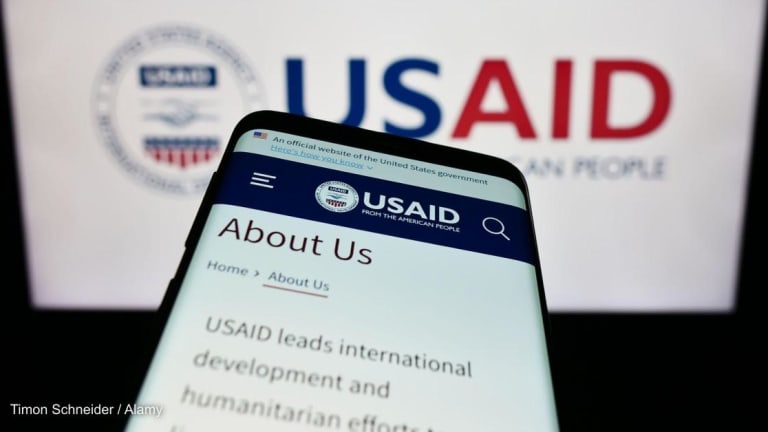The Bureau for Global Health is responsible for all USAID's work in the field of health worldwide. Anne Peterson heads this unit, based in Washington DC.
The devastating effects of HIV and AIDS infection, particularly in sub-Saharan Africa, have pushed health considerations to the forefront of development agency work. USAID's strategy for global health seeks to stabilize world population and protect human health through programs in maternal and child health, HIV/AIDS, family planning and reproductive health, infectious diseases, environmental health, nutrition and other life-saving areas. As Assistant Administrator, Anne is responsible for directing and heading this unit, and representing the Bureau within USAID at a managerial level. "This is by far the hardest job I've ever had, but in this kind of position you really are able to see and measure your successes. That is very rewarding." She said.
After gaining her bachelors degree at the University of Washington in Seattle, Anne trained as a medical doctor at Mayo Medical School in Rochester, Minn., USA and obtained her M.P.H. and Preventative Medicine residency from Emory University in Atlanta, Ga. Prior top joining USAID in November 2001, Anne worked as Commissioner of Health for the State of Virginia. However, her experience is not limited to the USA. She spent nearly six years working in Kenya and Zimbabwe in the fields of doing community development, public health training and AIDS prevention, as well as research in chronic disease prevention, outbreak investigations and food safety.
Anne believes her experience in Africa is invaluable in her current role. "In places like this, once people are sick enough to go to the hospital, it's usually too late," she said. "I realized early on that preventing illness out in the villages was the only way." Her current role requires her to communicate effectively with field workers based around the world and politicians in the USA. "Health is very political and controversial, and in a role like mine, you have to speak two languages. I have to translate the science for the politicians and the politics for the public health workers". She explained. "Some would say these two roles are incompatible, but to get anything done, public health professionals must package public health issues so that politicians understand the real issues. We have to have our evidence lined up".
In the future, addressing the challenges of the HIV and AIDS epidemic will continue to be a priority for USAID, boosted by the launch of the US$ 15 billion President's Emergency Plan for AIDS Relief, announced in 2003. "Operations research that identifies effective interventions and strategies to respond to HIV/AIDS is critical. With the epidemic showing no signs of slowing, it is critical that leaders in all parts of society, particularly the media, play their role in educating the public". Said Anne. "We know what to do with AIDS prevention. We've been underfunded for the amount of need. The resources have just not been big enough to turn around national-level numbers for the most part".



